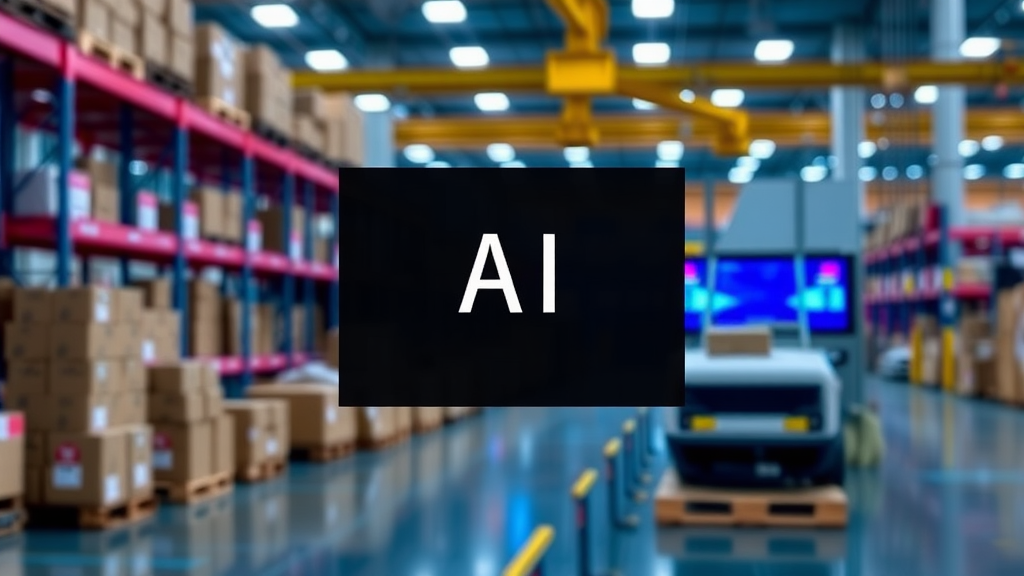Leveraging AI for Optimizing Supply Chain Processes
Unleashing the Power of AI in Supply Chain Optimization
In today’s fast-paced business landscape, supply chain optimization has become a crucial factor in maintaining a competitive edge. Amid the ever-evolving technological landscape, one solution has emerged as a game-changer: Artificial Intelligence (AI). By leveraging the power of AI, organizations can unlock unprecedented levels of efficiency, flexibility, and responsiveness within their supply chain operations.
Enhancing Demand Forecasting
Accurate demand forecasting is the cornerstone of an efficient supply chain. AI-powered algorithms can sift through vast troves of data, including historical sales patterns, market trends, and external factors, to generate highly accurate predictions of future demand. This enables businesses to better align their inventory levels, production schedules, and logistics, ultimately reducing waste, minimizing stockouts, and improving customer satisfaction.
Optimizing Inventory Management
AI-driven inventory management systems can analyze real-time data on product movement, shelf life, and demand patterns to automate replenishment decisions. By identifying optimal stock levels, these systems can minimize the risk of over-stocking or under-stocking, ensuring that the right products are available at the right time and place. This not only improves inventory turnover but also frees up capital that would otherwise be tied up in excess inventory.
Streamlining Transportation and Logistics
The transportation and logistics aspect of the supply chain can be a significant source of complexity and cost. AI can help optimize route planning, vehicle scheduling, and load balancing, taking into account factors such as traffic patterns, weather conditions, and vehicle capacities. This leads to reduced fuel consumption, decreased delivery times, and improved fleet utilization, ultimately enhancing the overall efficiency of the supply chain.
Add AI with the help of experts who get it
Enhancing Supply Chain Resilience
Supply chains are inherently vulnerable to disruptions, ranging from natural disasters to geopolitical events. AI-powered systems can analyze vast amounts of data from multiple sources to identify potential risks and bottlenecks in the supply chain. By proactively monitoring and responding to these risks, organizations can build greater resilience, ensuring their supply chains can withstand and quickly recover from unexpected challenges.
Improving Supplier Collaboration
AI can facilitate enhanced collaboration between organizations and their suppliers by facilitating real-time data sharing, automated order processing, and predictive maintenance. This enables both parties to align their operations, reduce lead times, and respond more effectively to changes in demand or supply. By fostering stronger supplier relationships, businesses can enhance the overall agility and responsiveness of their supply chain.
Driving Continuous Improvement
AI-powered supply chain analytics can provide valuable insights into the performance of various processes, identifying areas for improvement and optimization. By continuously monitoring key metrics, such as inventory turnover, delivery times, and customer satisfaction, organizations can make data-driven decisions to refine their supply chain strategies, leading to incremental gains in efficiency and cost savings over time.
The integration of AI into supply chain processes has the potential to transform the way businesses operate, ushering in a new era of unprecedented efficiency, flexibility, and resilience. By harnessing the power of AI, organizations can optimize their supply chain operations, reduce costs, enhance customer satisfaction, and maintain a competitive edge in an increasingly dynamic business environment.
Overcoming Challenges in Adopting AI-Driven Supply Chain Solutions
Navigating the Complexities of AI Adoption in Supply Chains
Add AI with the help of experts who get it
As businesses strive to optimize their supply chain operations, the allure of AI-driven solutions has become increasingly irresistible. However, the path to successful AI integration is not without its challenges. In this article, we’ll explore the common hurdles organizations face when adopting AI-powered supply chain solutions and uncover strategies to overcome them.
Overcoming the Skill Gap
One of the primary obstacles in AI adoption is the scarcity of skilled talent. Implementing and managing AI-driven supply chain systems requires a unique blend of technical expertise, domain knowledge, and strategic thinking. Many organizations struggle to find individuals who possess the necessary skill set to integrate AI seamlessly into their existing operations.
To bridge this gap, companies must invest in comprehensive training programs, fostering a culture of continuous learning. Collaborating with educational institutions and industry experts can help cultivate a pipeline of talent equipped to navigate the complexities of AI-powered supply chain management.
Ensuring Data Quality and Governance
The success of AI-driven supply chain solutions is heavily dependent on the quality and reliability of the underlying data. Inconsistent, incomplete, or inaccurate data can lead to flawed decision-making and suboptimal outcomes. Establishing robust data governance frameworks is crucial to ensure data integrity, security, and accessibility.
Add AI with the help of experts who get it
Organizations must implement rigorous data management practices, including data auditing, cleaning, and standardization. Leveraging data visualization tools can help identify and address data quality issues, empowering stakeholders to make informed decisions.
Overcoming Resistance to Change
Adopting AI-driven supply chain solutions often requires a significant shift in organizational culture and mindset. Employees may be hesitant to embrace new technologies, fearing job displacement or disruption to established workflows.
To overcome this resistance, leaders must prioritize change management, fostering a collaborative environment that encourages open communication and employee involvement. Providing comprehensive training, showcasing successful use cases, and emphasizing the enhanced capabilities and efficiencies AI can bring will help mitigate the fear of change.
Aligning AI with Business Objectives
Integrating AI into supply chain operations requires a clear understanding of the organization’s strategic goals and how the technology can support them. Failing to align AI initiatives with broader business objectives can lead to suboptimal investments and missed opportunities.
Add AI with the help of experts who get it
By conducting thorough assessments of the organization’s pain points and opportunities, companies can identify the areas where AI can deliver the most significant impact. This strategic alignment ensures that AI-driven supply chain solutions are tailored to address the unique challenges the business faces, maximizing the return on investment.
Navigating Regulatory and Ethical Considerations
As AI becomes increasingly prevalent in supply chain management, organizations must navigate the complex landscape of regulatory compliance and ethical considerations. Data privacy, algorithmic bias, and transparency in decision-making are just a few of the critical issues that must be addressed.
Proactively engaging with regulatory bodies, industry associations, and ethical AI experts can help organizations develop robust governance frameworks and ensure their AI-driven supply chain solutions adhere to the highest standards of responsible and ethical practices.
The adoption of AI-driven supply chain solutions presents both immense opportunities and significant challenges. By addressing the skill gap, ensuring data quality, overcoming resistance to change, aligning AI with business objectives, and navigating regulatory and ethical considerations, organizations can unlock the full potential of AI in optimizing their supply chain operations and gaining a competitive edge in the dynamic marketplace.
Conclusion
As AI technologies continue to evolve, their applications in supply chain optimization are becoming increasingly prominent. Businesses that leverage AI-driven solutions can unlock significant benefits, from streamlining inventory management and forecasting to enhancing transportation efficiency and reducing operational costs. However, the journey to adopting AI in the supply chain is not without its challenges. Overcoming hurdles like data quality, integration complexities, and workforce readiness is crucial for organizations to reap the full rewards of this transformative technology.
Add AI with the help of experts who get it
By investing in AI-powered supply chain optimization, companies can gain a competitive edge, respond more swiftly to market changes, and elevate customer satisfaction. As the technology matures and becomes more accessible, the potential for AI to revolutionize supply chain operations only continues to grow. Forward-thinking businesses that embrace this opportunity and address the associated challenges will be well-positioned to thrive in the dynamic, data-driven landscape of the future. As AI-powered supply chain solutions become more prevalent, organizations that prioritize this transformation will be poised to lead the way in the increasingly competitive global marketplace.



